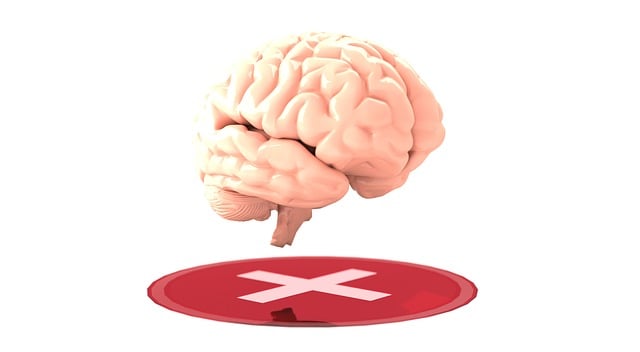Depression, prevalent globally with women disproportionately affected, is a complex mental health condition triggered by life changes or emotional disturbances. Early signs include persistent sadness, loss of interest, appetite/sleep changes, fatigue, and feelings of worthlessness. Golden Women's Issues therapy offers a safe space for women to explore emotions, develop communication strategies, and gain insights into managing mental wellness. Self-care, including exercise, mindfulness, therapy, and journaling, is vital for depression prevention. Building a strong support network through effective communication and social skills training reduces risk. Golden Womens Issues Therapy combines cognitive-behavioral therapy, mindfulness, and interpersonal techniques to improve mood management and overall mental wellness, with studies showing its effectiveness in reducing symptoms among healthcare providers. Proactive lifestyle changes focusing on self-care, setting boundaries, and physical activity are key components of this approach for depression prevention and improved quality of life.
Depression is a prevalent yet complex condition, affecting millions of women globally. This comprehensive guide explores effective prevention strategies tailored specifically for women. We delve into understanding depression’s triggers and early signs, empowering you with knowledge. Discover the transformative power of self-care, from nurturing your mind to enhancing physical well-being. Learn about building a supportive network and exploring evidence-based therapies, including Golden Womens Issues Therapy, for resilience. Additionally, discover lifestyle changes that promote long-term mood management.
- Understanding Depression: Common Triggers and Early Signs
- The Power of Self-Care: Nurturing Your Mind and Body
- Building a Supportive Network: Connections for Resilience
- Exploring Evidence-Based Therapies for Women
- Lifestyle Changes for Long-Term Mood Management
Understanding Depression: Common Triggers and Early Signs

Depression is a complex mental health condition that affects millions of people worldwide, with women being particularly vulnerable. Understanding depression involves recognizing its triggers and early signs, which can be subtle but significant. Common triggers include significant life changes, such as loss of a loved one, relationship problems, or financial difficulties. These events can disrupt the delicate balance of an individual’s emotional well-being, especially for those predisposed to mental health issues. Early signs of depression may include persistent feelings of sadness, loss of interest in activities once enjoyed, changes in appetite and sleep patterns, fatigue, difficulty concentrating, and feelings of worthlessness or guilt.
Identifying these signs early on is crucial as it allows for prompt intervention. The role of Golden Women’s Issues therapy cannot be understated here; it provides a safe space for women to explore their emotions, develop communication strategies, and gain insights into managing their mental wellness. Additionally, promoting emotional well-being through various techniques, such as those seen in Mental Wellness Podcast Series Production, can help build resilience against depression. Effective communication strategies, when incorporated into daily life, can serve as powerful tools for coping and fostering a positive mindset, ultimately contributing to the prevention and management of this formidable condition.
The Power of Self-Care: Nurturing Your Mind and Body

Depression prevention starts with prioritizing self-care, an essential aspect often overlooked but vital to the well-being of every woman. Nurturing both your mind and body is a powerful strategy in the arsenal against depression. This involves adopting healthy habits that promote mental wellness alongside physical fitness. Engaging in regular exercise, for instance, boosts endorphin levels and improves mood. Similarly, mindfulness practices such as meditation and deep breathing can calm the mind, reduce stress, and enhance emotional resilience.
Incorporating self-care rituals into daily life also includes attending to your thoughts and emotions through therapy or journaling exercises. The latter encourages reflection and processing of feelings while offering a safe space for expression. For those dealing with depression, seeking professional help is crucial; mental health professionals can guide individuals through personalized empathy-building strategies tailored to their unique circumstances. This holistic approach treats the mind, body, and soul, fostering overall mental wellness and resilience.
Building a Supportive Network: Connections for Resilience

Building a robust support network is a crucial aspect of depression prevention, especially for women navigating mental health challenges. The connections we foster can serve as a protective shield against the onset or exacerbation of depression. Golden Women’s Issues Therapy emphasizes the power of social connections in fostering resilience. By surrounding ourselves with understanding and supportive individuals, whether friends, family, or support groups, we create a safety net that provides comfort, encouragement, and perspective during difficult times.
Effective communication strategies and social skills training play a pivotal role in building this network. Expressing our feelings openly while listening to others fosters deeper connections. Learning to regulate emotions, manage stress, and seek help when needed through therapy or counseling further strengthens these bonds. These practices not only enhance emotional regulation but also provide practical tools for navigating life’s ups and downs, thereby reducing the risk of depression.
Exploring Evidence-Based Therapies for Women

Depression among women is a significant public health concern, and understanding evidence-based therapies tailored to their unique needs is crucial. Golden Womens Issues Therapy (GWIT) has emerged as a powerful approach, focusing on the intersection of gender-specific challenges and mental health. This therapy type incorporates strategies to address burnout prevention, which is prevalent among healthcare providers who often juggle demanding careers with caregiving roles. By combining elements from cognitive-behavioral therapy, mindfulness practices, and interpersonal techniques, GWIT offers a comprehensive framework for improving mood management and fostering mental wellness.
The effectiveness of GWIT lies in its ability to create safe spaces for women to explore complex emotions and experiences while providing practical tools for coping with stress and adversity. Studies suggest that this therapeutic approach can lead to substantial improvements in symptoms of depression, anxiety, and related conditions, ultimately enhancing the overall quality of life for those seeking support.
Lifestyle Changes for Long-Term Mood Management

Depression prevention isn’t just about quick fixes; it’s about cultivating sustainable lifestyle changes for long-term mood management. For women, this often involves addressing unique mental health challenges that can be exacerbated by societal expectations and gender roles. Golden Women’s Issues Therapy emphasizes the importance of holistic approaches, integrating strategies like mindfulness meditation to foster inner strength development and stress management workshops organized by supportive communities.
These lifestyle shifts go beyond mere coping mechanisms; they empower individuals to navigate life’s ups and downs with resilience. By prioritizing self-care, setting boundaries, and engaging in regular physical activity, women can cultivate a deeper sense of well-being that permeates all aspects of their lives. This proactive approach not only prevents depressive episodes but also enhances overall quality of life.
Depression prevention is a multi-faceted approach, and by integrating self-care practices, building strong support networks, and exploring evidence-based therapies like Golden Womens Issues Therapy, individuals can effectively manage their mood and prevent relapse. Consistent self-awareness and proactive lifestyle changes are key to fostering resilience against depression. Remember that seeking help is a sign of strength, and with the right strategies in place, lasting mental wellness is achievable.













